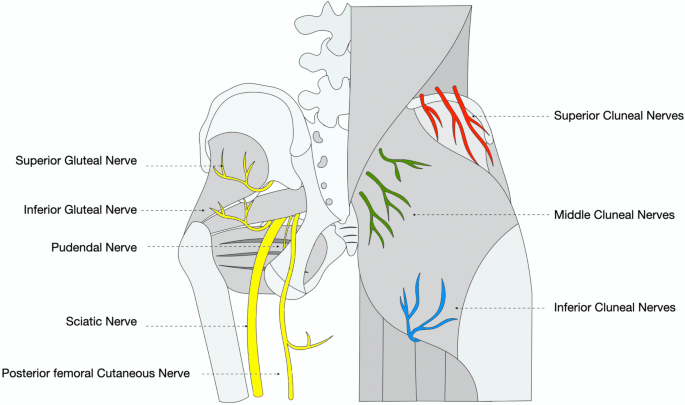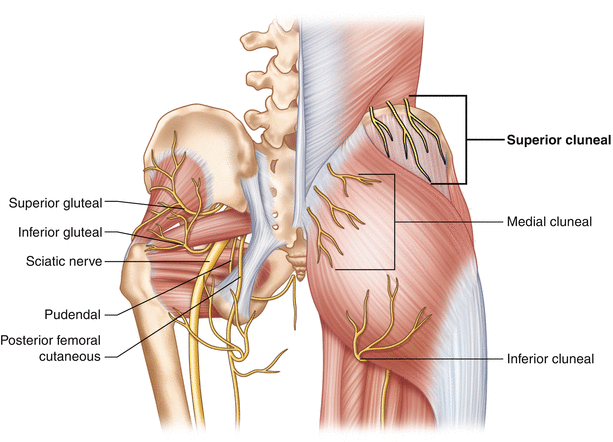Cluneal nerve entrapment Syndrome

The cluneal nerves are a group of cutaneous sensory spinal nerves( Superior, middle and Inferior) in the low back.The superior cluneal nerve (SCN) originates from nerve roots in the lower thoracic and lumbar spine, and courses towards the iliac crest where it pierces through the thoracolumbar fascia. The middle cluneal nerve (MCN) originates from the sacral nerve roots (S1-4) and lays beneath the long posterior sacroiliac ligament.
Superior and middle cluneal nerves are generally prone to entrapment.
Signs and Symptoms
- Low back pain
- Glute/Buttocks pain
- Groin Pain
- Testicular Pain
- Hamstring tightness and/or pain
- Numbness and/or tingling in the back or leg
- Exacerbated by low back movements
- Can mimic lumbar radiculopathy or sacroiliac pain
- Sensitive patches of skin in the low back or hips

JEEVISHA protocol for management of Cluneal nerve entrapment syndrome:
Conservative management strategies includes
- This condition is difficult to diagnose and other conditions affecting lower back have to be ruled out before diagnosing CNES. Once diagnosed , it is treated with Ultrasound guided Hydro-dissection of Cluneal Nerves.